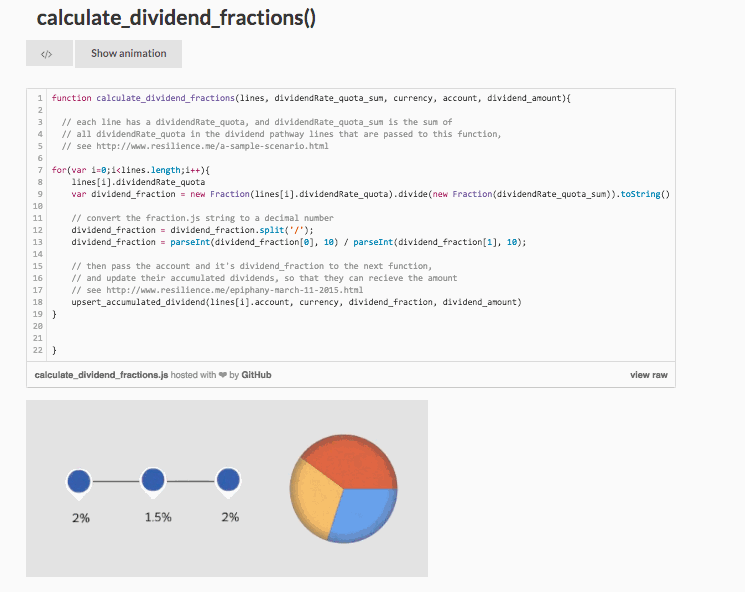An introduction to my system
http://dev.basicincome.co/functions.html
Here's part of the swarm-redistribution algorithm. You pass the transaction tax into compute_swarm(), it searches through the dividend pathway web (similar to how ripple finds trust-pathways), and finds all nodes that are inter-connected with the node who paid transaction tax. The tax is then divided on all these nodes (could be 100s, could be billions), and nodes who have dividend pathways with higher dividendRates - meaning they've been created when a node consumed from a node who chose a high transaction tax - nodes who have high-yield dividend pathways get a bigger piece of the taxed amount. The taxed sum is then divided on the 100s or billions of nodes, each node keeps a log about how much dividends they have received, and the whole taxed sum is then sent to the node who has accumulated the most in that log. The node who paid the transaction tax sends the whole amount to one single node, but all nodes still receive as much as if the money had been divided on 100s or billions of nodes.
http://dev.basicincome.co/functions.html
Here's part of the swarm-redistribution algorithm. You pass the transaction tax into compute_swarm(), it searches through the dividend pathway web (similar to how ripple finds trust-pathways), and finds all nodes that are inter-connected with the node who paid transaction tax. The tax is then divided on all these nodes (could be 100s, could be billions), and nodes who have dividend pathways with higher dividendRates - meaning they've been created when a node consumed from a node who chose a high transaction tax - nodes who have high-yield dividend pathways get a bigger piece of the taxed amount. The taxed sum is then divided on the 100s or billions of nodes, each node keeps a log about how much dividends they have received, and the whole taxed sum is then sent to the node who has accumulated the most in that log. The node who paid the transaction tax sends the whole amount to one single node, but all nodes still receive as much as if the money had been divided on 100s or billions of nodes.

